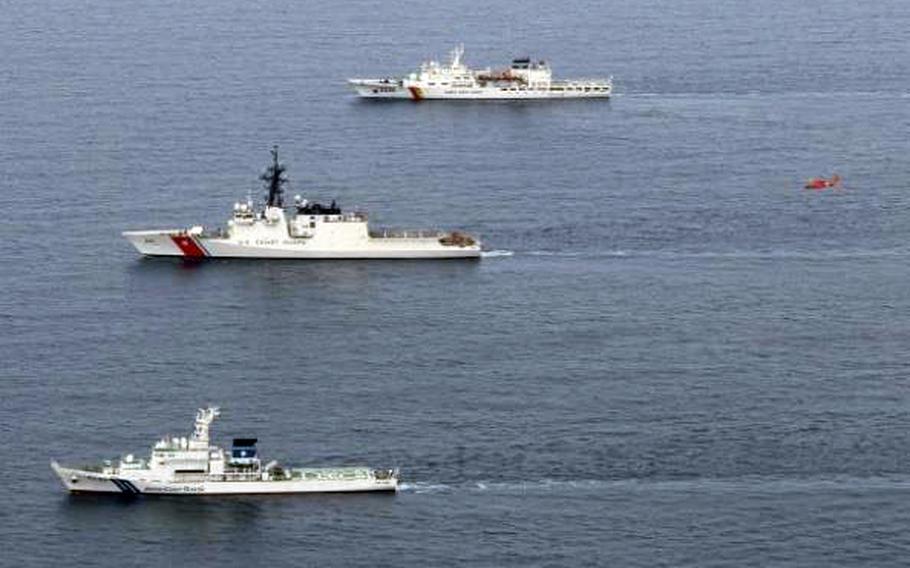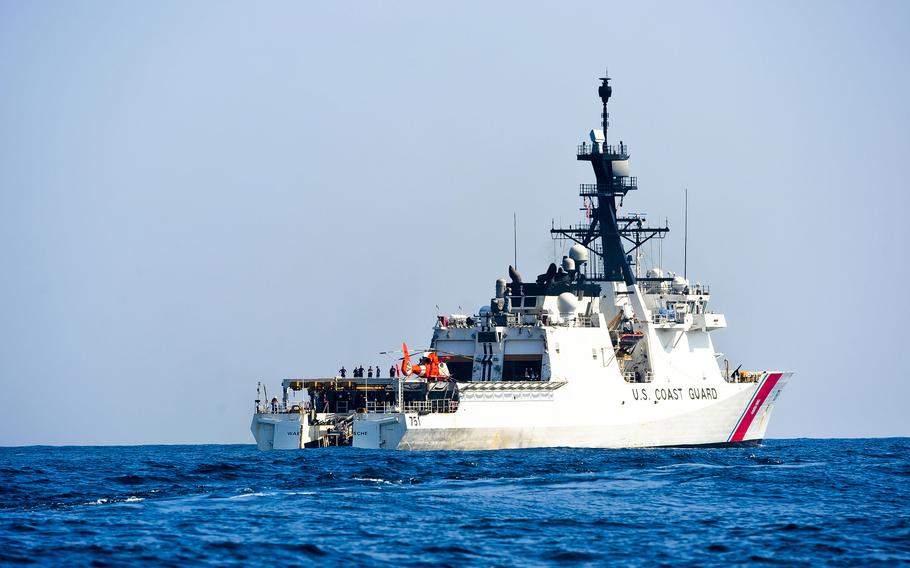
Coast guard patrol ships from the United States, Japan and South Korea train together for the first time on June 7, 2024, in the Sea of Japan. (Japan coast guard)
Coast guard vessels from the United States, Japan and South Korea practiced an emergency rescue — a first between the three countries — Thursday in the Sea of Japan.
One patrol ship from each country met off Maizuru city, about 60 miles from Kyoto, according to a Friday news release from the South Korean coast guard. They were joined by a U.S. helicopter and drone and a Japanese fixed-wing aircraft.
The scenario included a fictional collision between two cargo ships and a subsequent fire, which required the three coast guards to share information, plan and then execute a rescue, said U.S. Coast Guard Pacific Area spokeswoman Lt. Cmdr. Helen Shaye.
The U.S. Coast Guard cutter Waesche, homeported in Alameda, Calif., the Japanese patrol ship Wakasa and the South Korean patrol ship Taepyongyang 16 took part in the drill, the Japan coast guard said in a June 7 news release.
The training is a follow-up to a trilateral agreement reached in August at Camp David, Md., according to the South Koran coast guard’s release. It pledged “a new era of trilateral partnership,” along with increased levels of economic and military cooperation.
The three coast guards signed a letter of intent on May 9 committing to work more closely on law enforcement, search and rescue efforts and preserving maritime resources.
Thursday’s training built on that letter and “highlighted the strong partnerships between the three nations,” Shaye told Stars and Stripes.

The U.S. Coast Guard cutter Waesche patrols the Pacific Ocean in 2015. (Luke Pinneo/U.S. Coast Guard)
Thursday’s training occurred as tensions continue to simmer in the South China and Philippine seas, where Chinese and Philippine coast guard vessels regularly come into conflict.
Beijing claims vast swaths of the region, and Chinese vessels routinely target Philippine supply ships en route to Second Thomas Shoal, site of a small Philippine military outpost.
Last week, the U.S., Japan and South Korea announced another exercise, Freedom Edge, to take place sometime this summer.
Secretary of Defense Lloyd Austin made the announcement alongside his counterparts, defense ministers Minoru Kihara and Won-sik Shin, following a meeting in Singapore.
They reiterated opposition to any “unilateral attempts to change the status quo in the waters of the Indo-Pacific” and “recalled their respective positions regarding the dangerous and aggressive behavior” by China, the Pentagon said in a news release June 2.